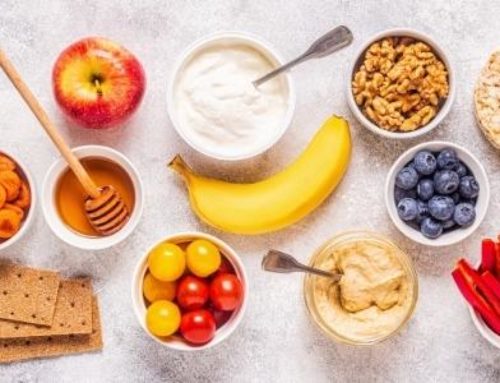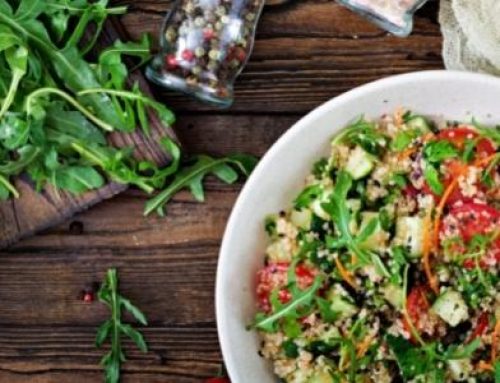 You’re probably more than aware of the current push to reduce added sugars in the diet. You’d have to be a hermit, the likes of Tom Hanks in Castaway, not to be. And even then I wouldn’t be surprised if his smug mate Wilson wasn’t warning him about the sugars in all those bananas he was eating.
You’re probably more than aware of the current push to reduce added sugars in the diet. You’d have to be a hermit, the likes of Tom Hanks in Castaway, not to be. And even then I wouldn’t be surprised if his smug mate Wilson wasn’t warning him about the sugars in all those bananas he was eating.
Despite his weathered appearance, Wilson’s concerns reflect those of the mass media and health professionals in most western societies. That added sugars are a problem and that reducing their consumption will improve the population’s health and waistlines.
With the current focus on sugar as the cause of all our woes, it’s not surprising that the notion of ‘sugar addiction’ has become an increasingly popular claim. Many media outlets have pounced on this and started pushing click-bait type headlines, comparing sugar to drugs such as cocaine. We’ve all seen the headlines, or the picture of two brains side by side illustrating a scarily similar neurological reaction to sugar and cocaine.
This concept of “sugar addiction” has now become become so prevalent that it’s part of everyday language. Self proclaimed “sugar addicts” and words such as “craving” are commonly used by everyday people to refer to their personal desires for sugar-rich foods.
Add this to research on the topic of food addiction. It’s easy to understand why many people believe they’re addicted to particular foods or specific nutrients, like sugar.
I am probably one of the most sceptical people you’ll ever know and I was intrigued by the concept of “sugar addiction”. I wanted to know, could a specific nutrient be addictive?
Is Sugar Addictive?
I’ll start by saying that currently, research looking at sugar addiction in humans is lacking.
Weird, right?
You’d think with all the attention and media headlines that there would be hundreds of well conducted studies. In truth, the majority of headlines and click-bait titles are based on research conducted on animals. Usually rats. While some share similar neurobiology to our hairy, gutter-loving friends, the results of animal studies aren’t always directly transferable to humans.
The answer to this question, as usual, isn’t a simple yes or no. Whether or not sugar is addictive may depend on how ‘addiction’ is defined.
Define addiction
If we look at ‘addiction’ in terms of a drug or substance addiction, then sugar addiciton would be characterised by a strong compulsion to consume sugar, driven by intense cravings. Over time we would expect to develop a tolerance to sugar, so that we’d need more and more to achieve the same positive feelings.
We would also expect to see a dependence on sugar, so that when we bought one of the many “quit sugar” books and removed sugar from our diet, we’d experience severe withdrawal effects, which in turn would make it difficult to quit.
At face value the above claims seem very plausible. We know that there are similarities between the effects of sugar and drugs on our brain’s reward circuits. Both release dopamine in the brain, which increases our motivation and ‘wanting’ for them in the future. However, this needs to be put in context. Music, laughing, winning, smiling faces or being in love can also stimulate this dopamine release. Are we addicted to these things?
So what does the evidence say?
Cravings:
We can all attest to having strong desires to eat copious amounts of a particular food some point. But before you strain your neck nodding vigorously, we need to decide if these food cravings are the same as those of drug abuse.
Unlike drugs, food cravings tend to be short lived. They come and go. It’s also worth noting that individuals rarely crave sugar or purely sweet foods alone. Rather, they crave foods with a mixture of sugar, fat and salt. Data from Weingarten and Elston found that food cravings are more commonly reported for either savoury/salty foods or sweet/fatty foods. In other words, hyper-palatable foods.
Also unlike drugs, food and sugar cravings may have less to do with a physiological craving and more to do with the thoughts you have about food. What happens if I tell you not to think about a warm, fresh cinnamon donut with a perfectly rounded scoop of vanilla ice cream perched on top?
You would probably think about it in all its sugary glory! Rogers and Smit hypothesised that attempts to restrain intake of particular foods can make the food more preoccupying and increase our want of it. Essentially, it the ‘forbidden fruit’ effect. Which is often different from a physiological craving for drugs.
Tolerance:
Another difference we see between sugar and drugs of abuse is tolerance. With sugar consumption we see rapid habituation and the dopamine response is actually slightly reduced by anticipatory cues such as smells. Unlike drugs, sugar will initially increase dopamine before returning to baseline without further increases.
Cocaine on the other hand, will continue to spike dopamine with further consumption and, over time, more and more of the substance is required for the sought after affects.
Withdrawals:
There is no evidence to suggest that limiting or cutting sugar from our diets imparts drug like withdrawals. While anecdotally we hear of headaches, cravings and lethargy, these are yet to be proven. What we do know is that we don’t see unease, depression, shaking and sweats, which are common symptoms of drug withdrawals.
Is sugar, as a substance, addictive?
The evidence at this time suggests not. At least when we look at it as a substance.
To quote a review by Westwater and colleagues “we find little evidence to support sugar addiction in humans, and findings from animal literature suggest that addiction-like behaviours occur only in the context of intermittent access to sugar…”
When we take a step back and think logically this makes sense, I mean we don’t see people spending all their money buying bags of pure sugar and eating it by the spoonful or robbing 7/11’s to fund their cupcake habit.
We also don’t see any abnormal mental state or change in behavioural disposition when high amounts of sugar are consumed. That’s why I haven’t been arrested driving under the influence of doughnuts and why no judge will consider drinking a litre of coke before committing a crime is relevant.
So if it’s not an addiction, why do some individuals ‘crave’ it and have such a hard time regulating their intake?
An important point to realise is that we don’t have to be clinically addicted to a food to over-consume it. There are many shades of grey between not caring about a food and being addicted to it. Just because I order cheesecake after a meal, despite not being hungry, doesn’t mean I’m addicted to cheesecake, it just means it’s highly rewarding to me.
This is a normal human reaction. My brain is doing what it’s supposed to do when it comes across a delicious calorie-dense food rich in fat and sugar. So, while most people may not be literally addicted to food, they do experience an enhanced motivation to eat certain foods through the same brain systems that mediate addiction.
This was born from our ancestors whose brains recognised the benefits of energy density (for survival and reproduction) and thus increased our motivation to seek out high energy foods. However, in our modern environment, where highly palatable foods are constantly available and easily accessible, it’s easy to see how our brains and bodies natural regulation systems can be overwhelmed.
In conclusion
The problem I have with using the term ‘sugar addiction’ is that it’s often used as a scape-goat. A way to shift the burden away from the individual. It’s giving up hope.
We need to have hope, so can we feel that we have the power to change our eating habits, and resist the call of pizza, chocolate or cheeseburgers.
By telling people sugar is more addictive than cocaine makes the situation seem hopeless, and it’s not.
If you’re someone who struggles to regulate their intake of highly palatable or high sugar products, don’t choose to accept ‘sugar addiction’. Understand that you’re in control of what you consume, it is possible. There are ways to make it easier. Particularly by creating an environment that minimises hyper-palatable food cues.
If you’d like further help with your nutrition please click below:
References:
Hebebrand J, Albayrak Ö, Adan R, Antel J, Dieguez C, de Jong J, Leng G, Menzies J, Mercer JG, Murphy M, van der Plasse G. “Eating addiction”, rather than “food addiction”, better captures addictive-like eating behavior. Neuroscience & Biobehavioral Reviews. 2014 Nov 30;47:295-306.
Ziauddeen H, Farooqi IS, Fletcher PC. Obesity and the brain: how convincing is the addiction model?. Nature Reviews Neuroscience. 2012 Apr 1;13(4):279-86.
Westwater ML, Fletcher PC, Ziauddeen H. Sugar addiction: the state of the science. European Journal of Nutrition. 2016 Jul 2:1-5.
Benton D. The plausibility of sugar addiction and its role in obesity and eating disorders. Clinical Nutrition. 2010 Jun 30;29(3):288-303.
Rogers PJ, Smit HJ. Food craving and food “addiction”: a critical review of the evidence from a biopsychosocial perspective. Pharmacology Biochemistry and Behavior. 2000 May 31;66(1):3-14.
Weingarten HP, Elston D. The phenomenology of food cravings. Appetite. 1990 Dec 31;15(3):231-46.





